Scalenut vs. Content Harmony: A head-to-head comparison of these popular SEO tools. We’ll explore their strengths, weaknesses, and pricing to help you make an informed decision.
Comparison Scalenut and Content Harmony
In today’s digital landscape, a robust SEO strategy is non-negotiable for online success. Two leading contenders vying for your attention in the crowded SEO tool market are Scalenut and Content Harmony. Both promise to streamline your SEO workflow and propel your website to the top of search engine rankings. But which one reigns supreme?
This comprehensive comparison dissects the features, strengths, weaknesses, and pricing of both platforms to help you make an informed decision for your specific SEO needs.
Scalenut
Scalenut positions itself as an “AI co-pilot” for your entire SEO content lifecycle. It combines keyword research, content planning, AI writing, optimization, and performance analysis within a single platform.
Scalenut: Overview
Scalenut is an AI-powered content marketing platform designed to help businesses create high-ranking content, optimize for search engines, and track performance.
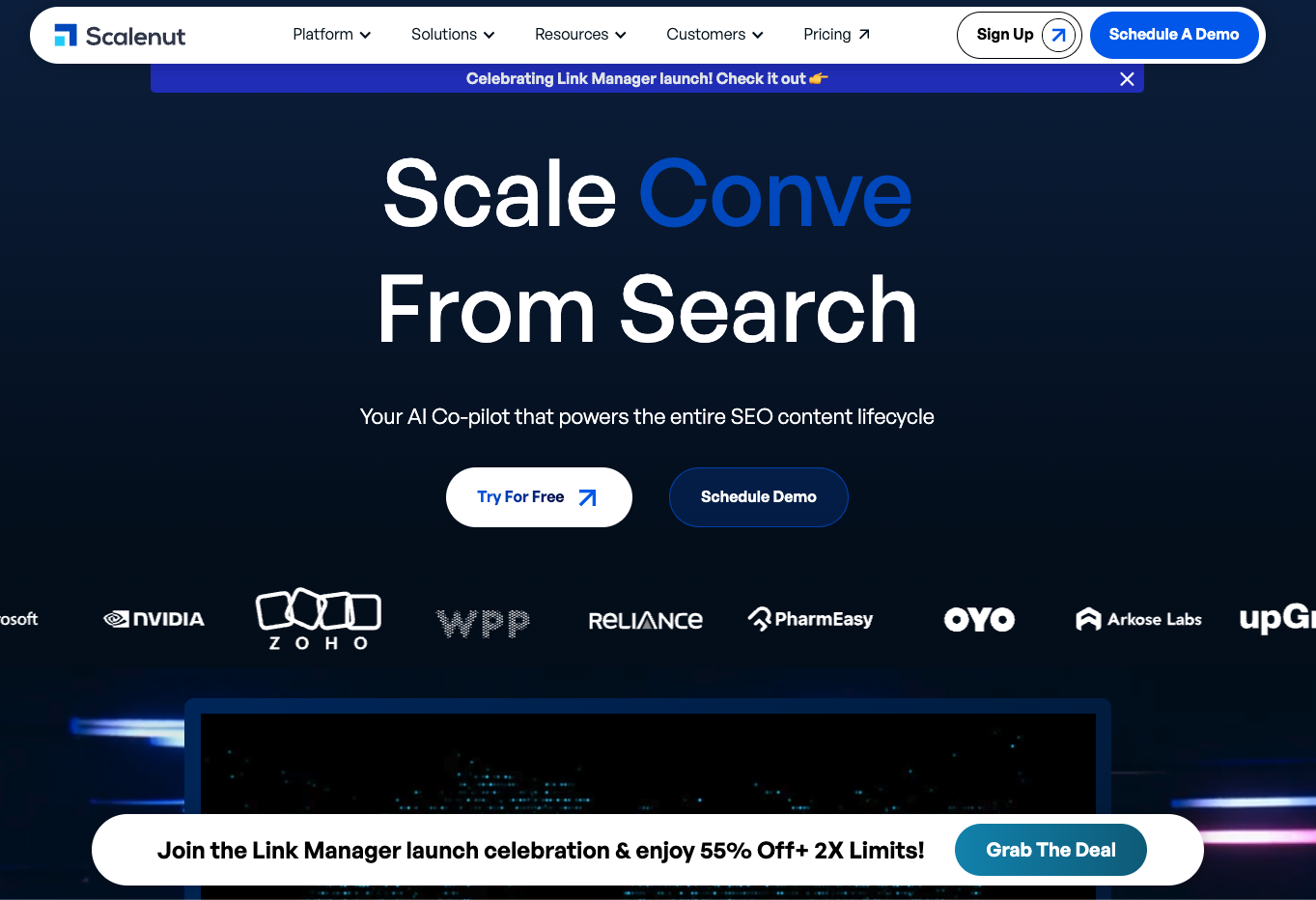
Scalenut: What It Does
- Keyword Planning: Uncovers relevant keywords, analyzes search intent, and identifies content gaps.
- Content Outlining: Generates content outlines and briefs based on SERP analysis and competitor research.
- AI Content Writing: Offers an AI writing assistant with multiple templates and a “Cruise Mode” for faster content creation.
- SEO Optimization: Provides real-time SEO scoring, NLP term suggestions, and automated content optimization features.
- Performance Tracking: Tracks website traffic, keyword rankings, and other essential SEO metrics.
Key Features of Scalenut
“Cruise Mode” for rapid AI-powered content generation
Content planning and outlining tools based on SERP data
Real-time SEO content scoring and optimization suggestions
Keyword clustering and analysis for topic authority
Integration with WordPress for direct publishing
Who is Scalenut For?
Content-heavy websites and blogs
Businesses focusing on content marketing and SEO
Marketing teams looking for data-driven content strategies
Pros of Scalenut
Strong emphasis on content quality and SEO best practices.
Advanced content planning tools with SERP data integration.
Comprehensive AI writing features with various templates and styles.
Real-time SEO optimization and suggestions for content improvement.
Cons of Scalenut
Can be expensive, especially for higher content volume needs.
The interface, while feature-rich, might feel overwhelming for beginners.
Limited automation features for tasks like content scheduling and publishing compared to competitors.
Advanced content planning and research tools
Powerful AI writing assistant with “Cruise Mode”
Real-time SEO content optimization and scoring
In-depth keyword analysis and clustering
Integration with WordPress
Higher price point
Steeper learning curve
Limited automation features
Scalenut Pricing
- Essential: $18/month (billed annually) – Best for individuals and small businesses.
- Growth: $36/month (billed annually) – Ideal for startups and growing businesses.
- Pro: $67/month (billed annually) – Suitable for larger teams and agencies.
Scalenut’s pricing is based on a credit system, with credits used for various actions like generating content or analyzing keywords. They offer three primary plans:
Scalenut also offers an Enterprise plan with custom pricing for organizations with specific needs.
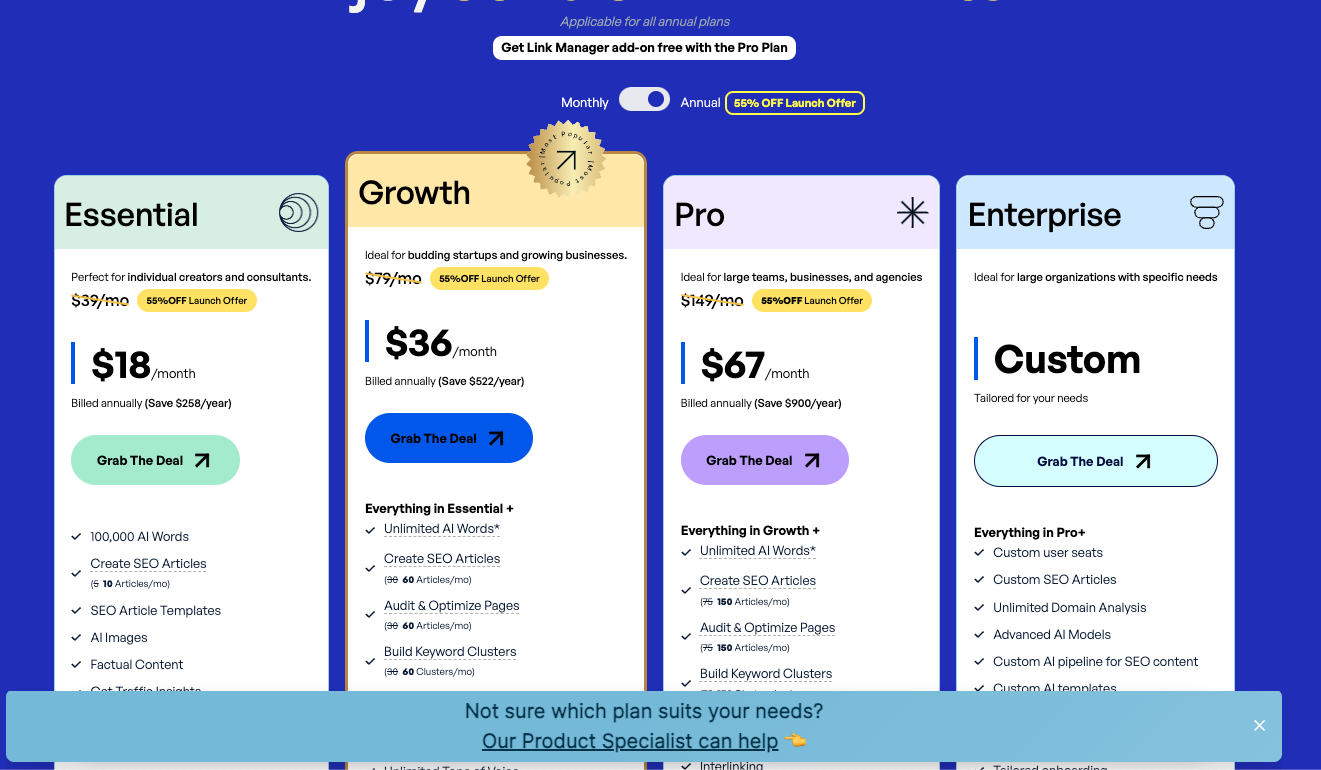
What Users Say About Scalenut
Users highlight Scalenut’s robust content creation and optimization capabilities, praising the “Cruise Mode” for its efficiency. Many appreciate the data-driven approach to content planning and the actionable insights provided for SEO improvements.
What’s Missing in Scalenut
More seamless automation features for content scheduling and multi-platform publishing.
A wider range of integrations with third-party SEO and marketing tools.
A more budget-friendly pricing option for individual users and smaller businesses.
Final Thoughts on Scalenut
Scalenut is a powerful content marketing platform that excels in AI-powered writing, SEO optimization, and content planning. It’s an ideal choice for businesses prioritizing high-quality, data-driven content to boost their organic search visibility.
Content Harmony
Content Harmony emphasizes a structured content workflow, utilizing AI and competitor analysis to create data-driven content briefs that fuel high-performing content creation.
Content Harmony: Overview
Content Harmony is a content marketing platform that focuses on streamlining the content creation process through AI-powered research, detailed content briefs, and performance grading.
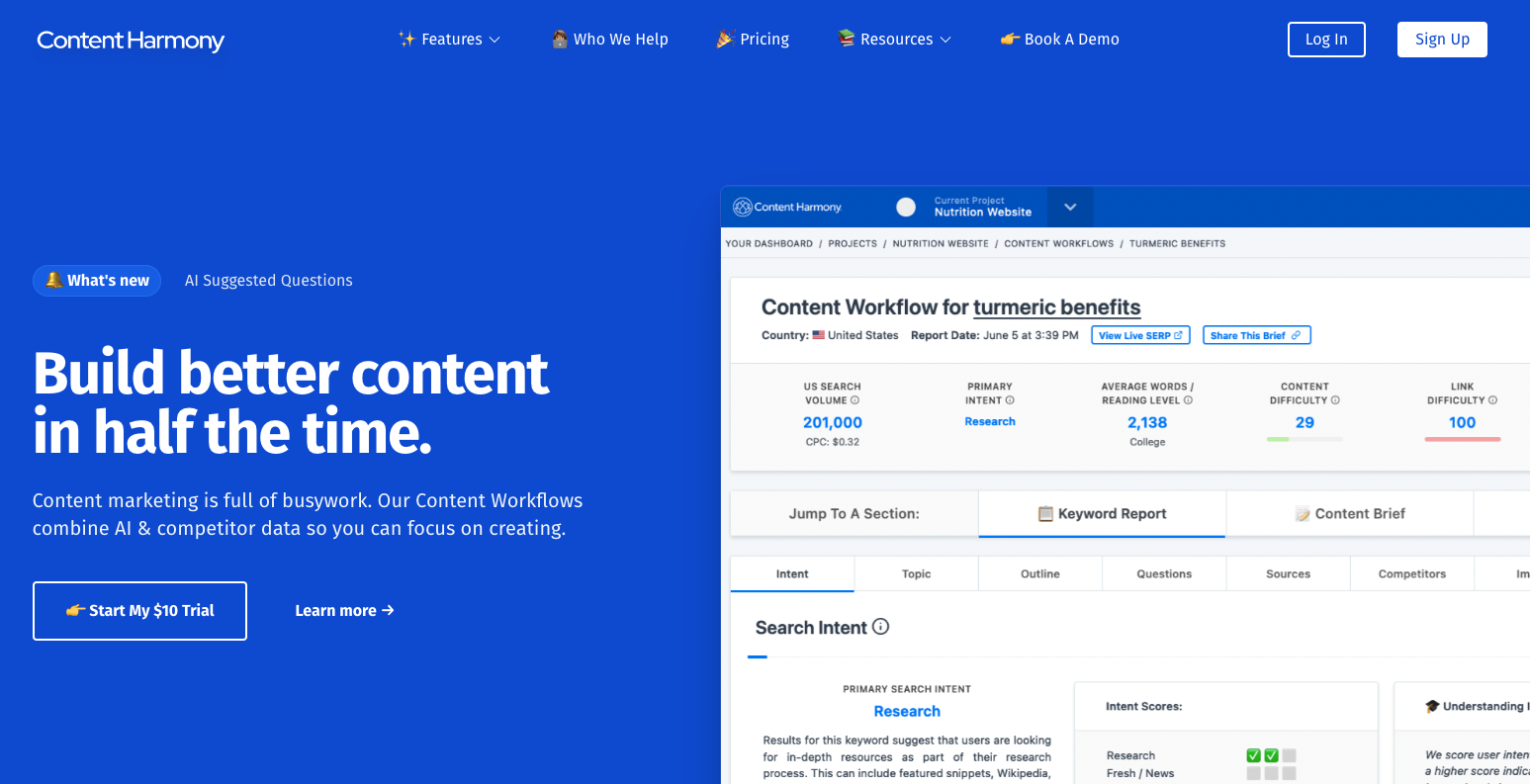
Content Harmony: What It Does
- Keyword Research: Analyzes search intent, identifies relevant keywords and questions, and provides competitor outlines.
- Content Briefs: Generates structured content briefs with key insights, recommended headings, and linking opportunities.
- Content Grader: Evaluates content drafts against the generated brief to ensure comprehensiveness and SEO alignment.
Key Features of Content Harmony
AI-driven search intent analysis
Detailed, customizable content briefs
Content grading and optimization suggestions
Collaboration features for teams
Integration with Google Search Console
Who is Content Harmony For?
Content marketing teams focused on creating high-quality, SEO-driven content
Agencies looking to standardize their content briefing process
Businesses seeking to improve content strategy and ROI
Pros of Content Harmony
- Data-Driven Content Strategy: Leverages search intent and competitor analysis for informed content creation.
- Streamlined Workflow: Standardized briefs and grading tools enhance team collaboration and efficiency.
- Content Quality Improvement: Focus on key insights and optimization suggestions ensures high-performing content.
Cons of Content Harmony
- Limited Content Generation: Primarily focuses on research and briefing, requiring external tools for content creation.
- Pricing Based on Usage: Can become expensive for high-volume content producers.
Comprehensive content research and analysis
Structured content briefs for improved workflow
Content grading and optimization features
Does not include content generation capabilities
Usage-based pricing may not suit all budgets
Content Harmony Pricing
Usage-based pricing starting at $199/month for 25 content workflows.
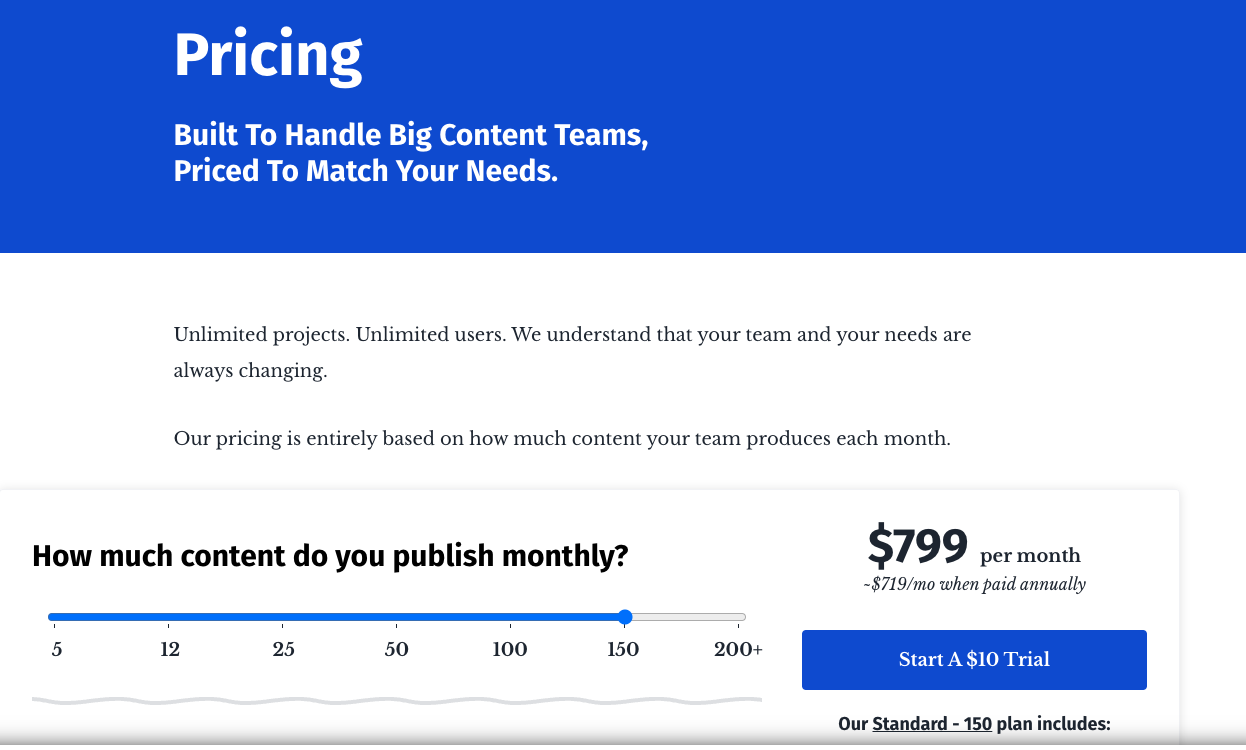
What Users Say About Content Harmony
Content Harmony receives positive feedback for its intuitive platform, detailed briefs, and impactful content strategy guidance.
What’s Missing in Content Harmony
Integrating a content generation tool within the platform would enhance its value proposition.
Final Thoughts on Content Harmony
Content Harmony excels at providing data-driven insights and structured workflows to create high-quality content that ranks.
Scalenut vs Content Harmony: Which One Should You Choose?
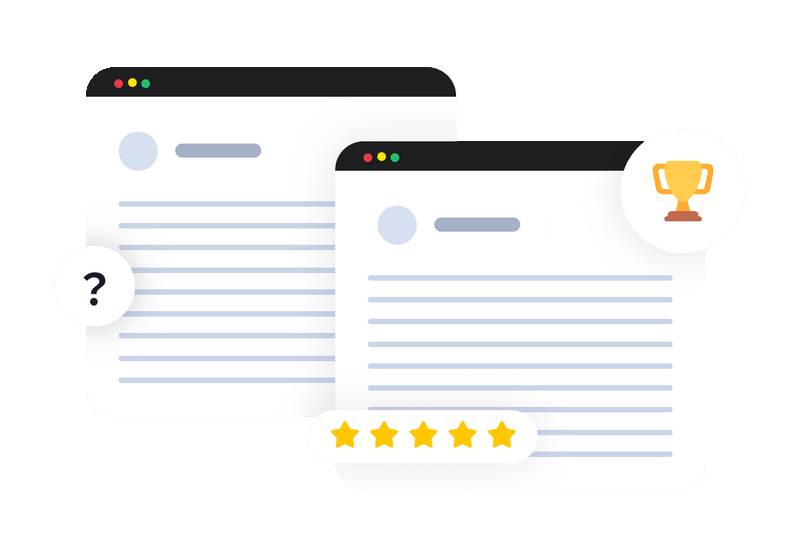
Choose Scalenut if:
– You prioritize high-quality, data-driven content creation.
– In-depth keyword research and content planning are crucial for your strategy.
– You value real-time SEO optimization suggestions and content scoring.
Choose Content Harmony if:
– Your primary focus is on creating high-quality, SEO-optimized content based on in-depth research.
– You need a structured content briefing process to improve team collaboration and content consistency.
– You’re willing to invest in a platform that prioritizes data-driven content strategy and performance.
search engines ranking patterns to create content that dominates
searches, all without penalty risk.
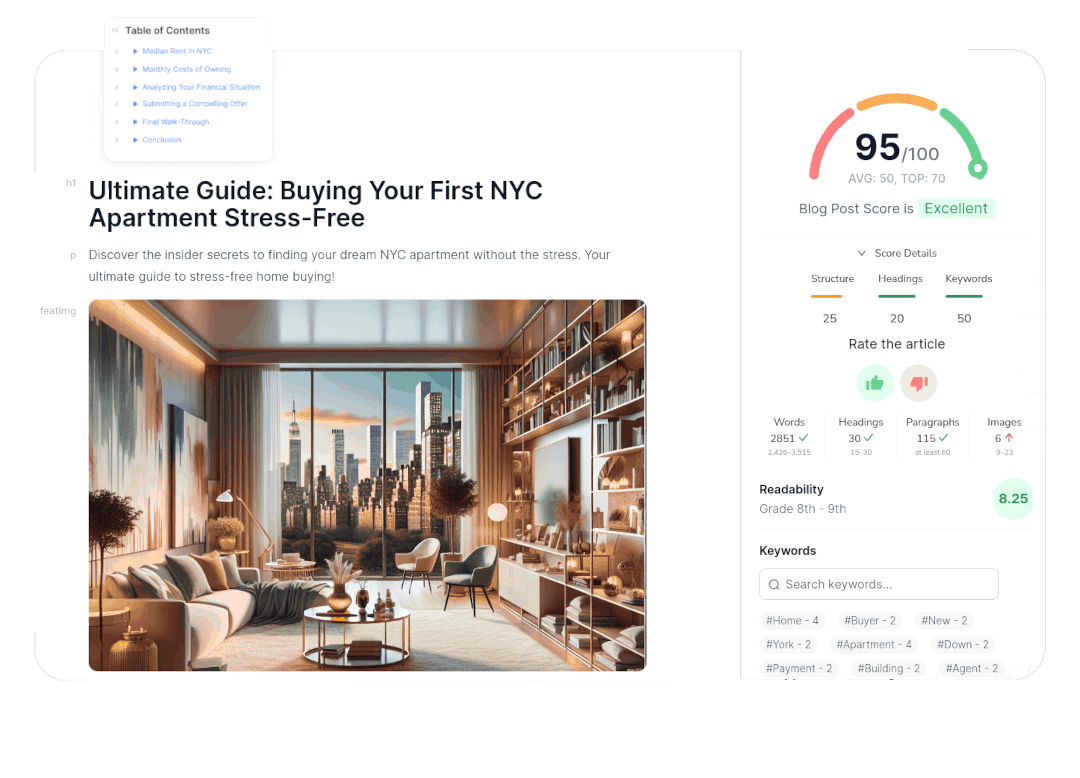
Why Consider SEOrocket Over Scalenut and Content Harmony?
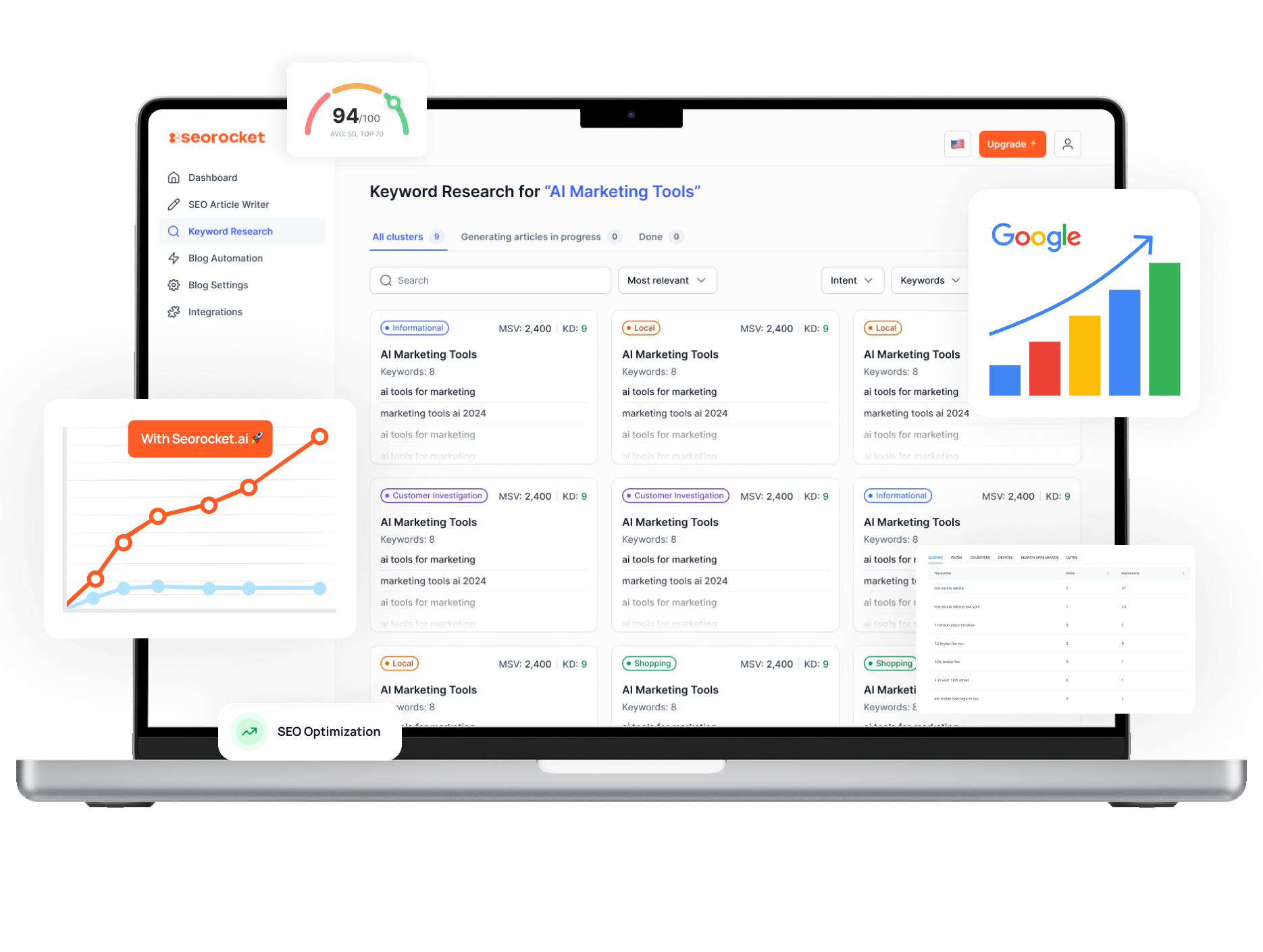
While Scalenut and Content Harmony AI are strong contenders in the content optimization and generation landscape, Seorocket stands out as a comprehensive and cost-effective alternative. Here’s why:
By choosing Seorocket, you can streamline your content marketing efforts, save time and resources, and achieve significant improvements in your search engine rankings.




